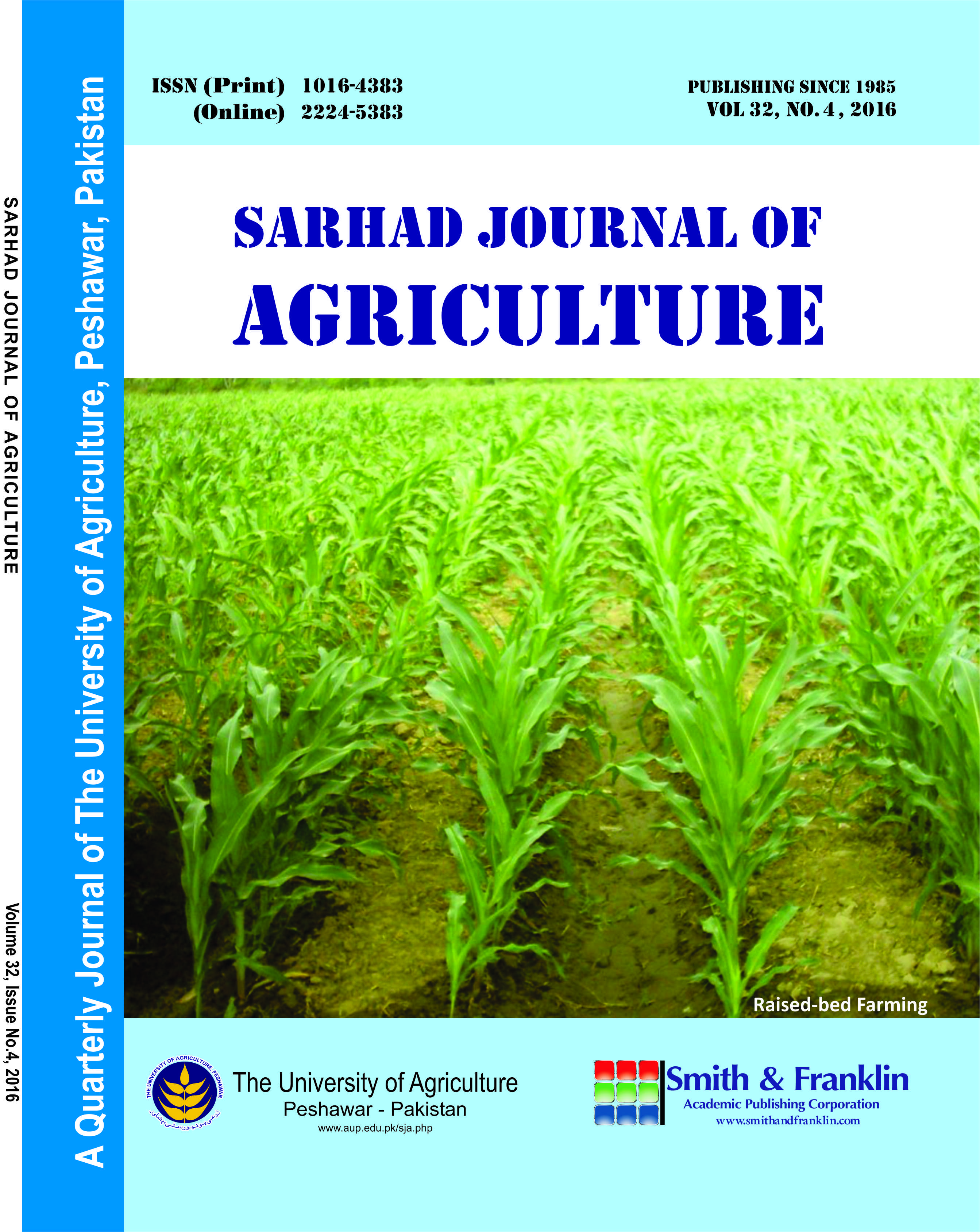Farmers Behavior to Participate in Public Sector Agricultural Extension Services: Comparative Analysis of Pakistan and China
Muhammad Yaseen1*, Xu Shiwei2, Yu Wen2, Ejaz Ashraf1, Muhammad Luqman1, Muhammad Ameen3 and Sadia Hassan4
ABSTRACT
The contemporary study was designed to investigate farmer’s participation behavior concerning public sector agricultural extension services, by comparing the situations of two countries, Pakistan and China. The logistic regression model was used to study the influence of age, education, labor, farm area and villages on the household head’s participation in agricultural extension services/ activities organized by public sector department. For this purpose, a random sample of 160 households from four districts of Punjab province of Pakistan was selected, and another random sample of 122 households selected from the six villages of Huailai County of Hebei Province in China. Data were collected using the interview method with the help of validated and expert reviewed interview schedule. The results revealed that the household head’s average age is 47 years in Pakistan and 53 years in China. The old aged household head’s participation in extension services in Pakistan is less (36%) than China (43%). Similarly, household head’s education is 9 years schooling in Pakistan accounting less participation (25%) in agricultural extension services while 7 years schooling in China with higher participation (57%) in agricultural extension services. Governments of the Pakistan and China should launch massive adult literacy programs to increase the educational level of the farming community together with the involvement of youth in agricultural farming and agro-based enterprises to achieve sustainable rural livelihood and improved living standards.
To share on other social networks, click on any share button. What are these?








